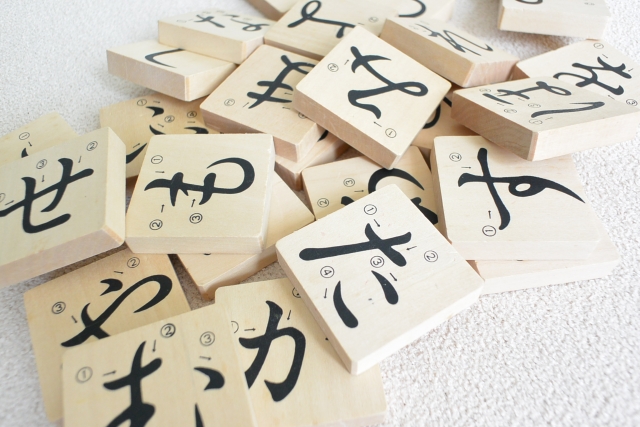助数詞(じょすうし)は、数量を表現する際に数詞に付け加えられる日本語の単語です。何かを数えるときにその物の性質や形状、種類に応じて、適切な助数詞を選んで使用します。助数詞は一般に数詞の後に置かれ、その数量の性質や種類をより具体的に示します。
動物を数えるときの助数詞は動物の種類、特に大きさによって変わってきます。代表的なものをいくつか挙げてみます。
匹(ひき):一匹、二匹、三匹...
例:犬や猫などの小型の動物や生きている魚を数えるのに使います。
頭(とう):一頭、二頭、三頭...
例:馬や牛などの大型の動物を数えるのに使います。
羽(わ):一羽、二羽、三羽...
例:鳥類を数えるのに使います。
動物を数える助数詞のなかには例外もあります。例えば、うさぎを数えるときは一匹、二匹...ではなく、一羽、二羽...になりますが、一匹、二匹...と言っても通じないわけではありません。
次に船の数え方も紹介したいと思います。船もその大きさと用途によって数え方が変わります。
隻(せき):大型の船や船舶を数える際に使われます。
艘(そう):中型から小型の船を数える際に使われます。
艦(かん):船や艦船を数えるための助数詞です。一般的には、軍艦や軍用艦船を数える際に使われます。
その他に、人は「人(にん)」で数えますが、1人は「いちにん」ではなく「ひとり」。2人は「ににん」ではなく「ふたり」と読みます。3人以上は「さんにん」と数字に「にん」をつけて呼びます。
言語の進化は文化的な背景による要因が多く、それぞれの言葉の使い方や慣習によって定まります。そのため、日本語の助数詞は覚えるのが難しい部分もありますが、慣れてくると自然な使い方が身についてきます。
動物を数えるときの助数詞は動物の種類、特に大きさによって変わってきます。代表的なものをいくつか挙げてみます。
匹(ひき):一匹、二匹、三匹...
例:犬や猫などの小型の動物や生きている魚を数えるのに使います。
頭(とう):一頭、二頭、三頭...
例:馬や牛などの大型の動物を数えるのに使います。
羽(わ):一羽、二羽、三羽...
例:鳥類を数えるのに使います。
動物を数える助数詞のなかには例外もあります。例えば、うさぎを数えるときは一匹、二匹...ではなく、一羽、二羽...になりますが、一匹、二匹...と言っても通じないわけではありません。
次に船の数え方も紹介したいと思います。船もその大きさと用途によって数え方が変わります。
隻(せき):大型の船や船舶を数える際に使われます。
艘(そう):中型から小型の船を数える際に使われます。
艦(かん):船や艦船を数えるための助数詞です。一般的には、軍艦や軍用艦船を数える際に使われます。
その他に、人は「人(にん)」で数えますが、1人は「いちにん」ではなく「ひとり」。2人は「ににん」ではなく「ふたり」と読みます。3人以上は「さんにん」と数字に「にん」をつけて呼びます。
言語の進化は文化的な背景による要因が多く、それぞれの言葉の使い方や慣習によって定まります。そのため、日本語の助数詞は覚えるのが難しい部分もありますが、慣れてくると自然な使い方が身についてきます。
Counting in Japanese
The words you use to count in Japanese, or josuushi, are Japanese words that express quantity by adding numbers. When counting something, you choose an appropriate particle based on the nature, shape, and type of the object. You usually place a particle after a number to indicate the more specific nature or type of quantity.
When counting animals, the particle will depend on the type of animal, especially its size. Some typical examples are:
Hiki (匹): 1 (ippiki), 2 (nihiki), 3 (sanbiki)...
We typically tend to use these particles to count small animals such as dogs and cats, as well as live fish.
Tou (頭): 1 (itto), 2 (nitou), 3 (santou)...
We typically use these particles to count large animals such as horses and cows.
Wa (羽): 1 (ichiwa), 2 (niwa), 3 (sanwa)...
We typically use these particles to count birds.
There are exceptions among the animal counting particles. For example, to count rabbits, we’d use 1 (ichiwa) and 2 (niwa) instead of 1 (ipiki) and 2 (nihiki), but if you did use the wrong counting particle, people would still understand what it means.
The way to count boats also depends on their size and purpose.
- Seki (隻): A particle to count large ships and vessels.
- Sou (艘): to count medium to small-sized vessels.
- Kan (艦): A particle to count ships and vessels. It is generally used to count warships and military vessels.
To count people, you would use "nin" (人), but if you’re only counting one person, you would use "hitori" (one person), rather than "ichinin" (one person). When counting two people, you’d use "futari" (two people), not "niinin" (two people). For three or more people, you would use "san-nin" (three people) with "nin" added to the number.
Usage and conventions of each language determine the evolution of language while cultural factors largely influence it. For this reason, some parts of Japanese particles are difficult to learn, but as you get used to them, you will learn how to use them naturally.
sign up for the Japanese-Online Newsletter
__..-・**・-..__..-・**・-.._ あいうえお かきくけこ さしすせそ たちつてと なにぬねの はひふへほ まみむめも やいゆえよ らりるれろ わゐうゑを ん __..-・**・-..__..-・**・-.._
#JapaneseOnline #LearningJapanese #FreeJapaneseLessons #JapaneseVideoLearning #JapaneseAnime #Anime #JapaneseFood #Bloguru










